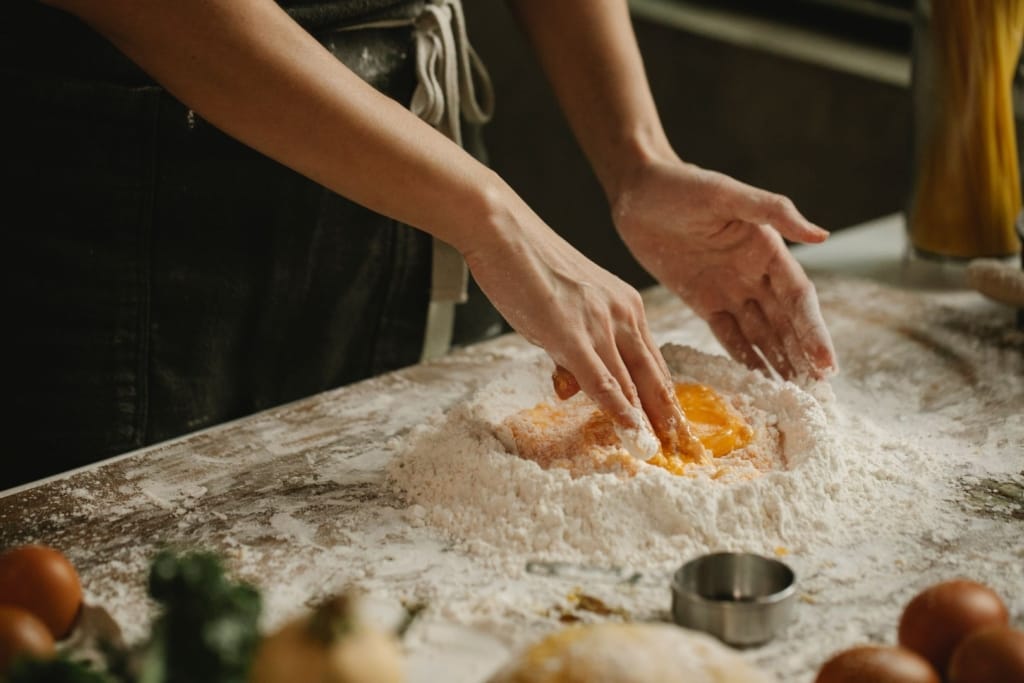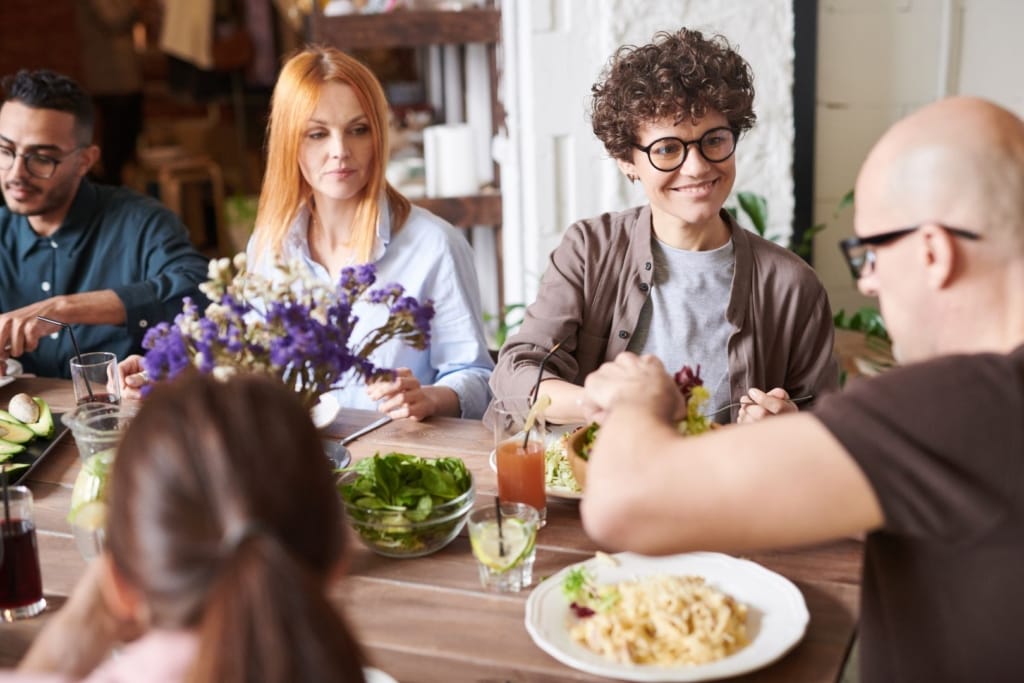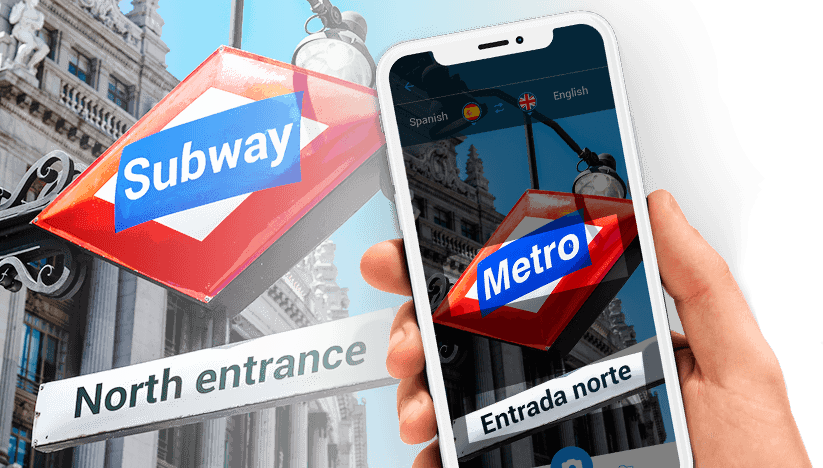
Learning Italian is possible in too many ways, but none as delicious as doing it through food.
Scholars say that food is more than just a way to satisfy hunger. A culture’s traditions, history, and heritage are all served on a plate and shared around the table.
- Grandparents and grandchildren gather over meals.
- Neighbors connect.
- Even love stories begin at the table!
That’s the magic of food—it’s not just a biological necessity but a powerful force of connection. Through gastronomy, we can understand a country’s past and its future. And there’s no doubt that few nations cherish their cuisine as much as the Italians.
Learning Italian through its food is one of the most exciting ways to discover this beautiful language. So today, let’s take a seat at Nonna’s table and explore some fascinating insights.
Learning Italian & add flavor to your life
Italy is simply breathtaking! From the sun-kissed Mediterranean coasts to the chilly slopes of Piedmont. From the towering Alps to the eternal beauty of Rome. From the rolling hills of Tuscany to the vibrant streets of Milan.
Visiting this stunning country should be on everyone’s bucket list. Every corner of “The Boot” is picture-perfect—ideal for an Instagram-worthy post.
But beyond its scenic landscapes, the true heart of Italy lies in its food.
In Italy, cooking is an art, an act that begins with choosing the finest ingredients and ends with the sacred scarpetta—the act of using bread to savor every last bit of sauce on the plate.
Italian cuisine is more than just food—it’s a way of life.
That’s why there isn’t a single country on Earth (and perhaps in the entire galaxy) without an authentic Italian ristorante, a cozy pizzeria, or a charming gelateria.
So, learning Italian is not just about mastering grammar and pronunciation…
Truly learning Italian means to embrace their passion for life
Living all’italiana means adding flavor to every moment, savoring each experience with joy. Most importantly, it means that every meal becomes an unforgettable experience.
If learning Italian is your goal and living all’italiana is a wish, keep reading for some expert tips on how to do it!

Food is an event—whether there’s a celebration or not!
Ask any Italian, and they’ll confirm it: every meal is special. To truly learn Italian in an authentic way, you must understand that no meal is insignificant.
It doesn’t matter if it’s a Wednesday night dinner or a Sunday morning breakfast—for Italians, eating is a pleasure. And for that reason, the entire sacred process must be respected.
In any Italian home, you’ll notice that time is always set aside for every step of the meal.
- Grocery shopping? Ingredients are chosen for their flavor, aroma, and appearance—because a dish must look, smell, and taste amazing.
- Cooking? It’s never rushed. Italians believe that food should be prepared with care, respecting the perfect cooking times.
- Eating? Even in a fast-paced world, Italians make time for meals whenever possible.
For outsiders, the ceremony surrounding every meal might seem excessive. In many cultures, food is simply a way to satisfy hunger. But in Italy, eating is a social act, a family tradition, and a moment of connection.
If they can, Italians will set the table as if the Pope himself were coming to dinner. Because for them, the opportunity to sit down and enjoy a meal is a celebration in itself.
“Tutti a tavola”: Meals are meant to be shared
Family and friends are the heart of Italian culture. And this gives you an incredible opportunity to learn Italian through food.
In Italy, the dining table is more than just furniture—it’s the center of social life, where relationships are strengthened. Meals are long, relaxed, and filled with laughter and conversation.
Here’s what to expect when you’re invited to an Italian table:
- The meal starts slowly—with appetizers, or antipasto. These small shared dishes serve as a warm-up before the main course.
- There’s time to talk before eating. Italians love to catch up and break the ice before diving into the food.
- Courses are served one by one—and between each dish, there’s a pause for conversation and enjoyment.
- The after-meal chat is just as important. This is when families share stories, discuss life, and truly connect.
For someone like you, who is learning Italian, these are golden moments. Listen, participate, and absorb the language naturally—it’s the best way to improve!
Everyone is welcome—especially those who are learning Italian
Italian hospitality is legendary. Anyone with an Italian friend knows this well.
An Italian will invite you into their home as a sign of true friendship. They take great pride in their culture, heritage, and traditions—and if you show interest in learning Italian, they’ll go out of their way to teach you.
Nonna, mamma, and the whole family will treat you as one of their own. Italians love sharing their roots and traditions—they are one of the most inclusive cultures in the world.
For language learners, this is a huge advantage—a warm, welcoming environment to practice Italian naturally. However, respect for traditions is key—especially when it comes to food and dining etiquette.
Stay tuned, because up next, we’ll reveal some of the biggest “sins” you should NEVER commit at an Italian table!
10 things you should NEVER do when invited to eat in Italy
First of all, don’t panic—no one will kick you out or make you feel uncomfortable. Italians are way too polite for that. But if you’d like to get invited again, make sure you NEVER do the following:
Show up empty-handed
In Italy, it’s considered impolite to arrive at a meal without bringing a small gift for the hosts. A bottle of good Italian wine, a dessert, fresh flowers, or even quality cheese or cured meats are all great options.
- Tip: If you bring wine, make sure it’s Italian and of good quality—your hosts will appreciate the effort.
Refuse the food
Italian hosts take great pride in preparing delicious, abundant meals. Refusing a dish may be seen as disrespectful. Even if you’re full, at least try a little bit of everything.
Ask for cheese on pasta when it’s not appropriate
In Italy, not all pasta dishes go with cheese. For example, never ask for cheese on seafood pasta—this is considered a gastronomic sin.
Cut your pasta with a knife or fork
Pasta is never cut. Instead, it’s twirled around the fork—and if needed, a spoon can help (although even this is debated).
- Warning: Cutting spaghetti is seen as a lack of knowledge about Italian cuisine!
Ask for ketchup on pasta or pizza
Using ketchup on pasta is one of the biggest culinary sins in Italy. The same goes for unusual sauces on pizza—traditional recipes are highly respected.
Order a cappuccino after a meal
In Italy, cappuccino is strictly a breakfast drink. After lunch or dinner, Italians prefer espresso. Ordering a cappuccino after a meal will definitely raise some eyebrows!
Mix different courses on one plate
Italian meals are served in separate courses:
- Antipasti (appetizers)
- Primo (first course, usually pasta or risotto)
- Secondo (main course, usually meat or fish)
- Dolci (dessert)
Don’t mix everything together or ask for pasta and meat on the same plate—it’s not how it’s done!
Rush through the meal
Meals in Italy are sacred moments for socializing. Eating too fast or getting up immediately after finishing may come across as rude. Enjoy the moment, take your time, and embrace the tradition of “la sobremesa” (after-meal conversation).
Drown your pasta in sauce
In Italy, pasta is served with just enough sauce to enhance the flavor—not swimming in it. Asking for extra sauce might be seen as criticism of the host’s recipe.
Keep your hands under the table
Italian dining etiquette suggests keeping your hands visible on the table (without resting your elbows). It’s a sign of courtesy and respect toward other guests.
The golden rule of italian dining
If you want to be invited back and continue your journey of learning Italian at the table, follow these simple yet meaningful traditions. And finally, just like in Catholicism, there’s one ultimate commandment:
“Eat everything on your plate and always compliment the cook!”

What to talk about at the table if you are learning Italian?
Being a good host is an art, but so is being a good guest. If you’re in the process of learning Italian, there are a few things you should know before sitting at the table—especially when some topics might go beyond your fluency.
Here’s a do’s and don’ts guide to help you navigate conversations at an Italian table.
Food and traditional recipes
Talking about food is the number one topic at any Italian table. If you want to learn Italian, take advantage of this!
- DO: Ask about family recipes or the history of a dish being served. You can also inquire about the best way to prepare a traditional dish.
- DON’T: Criticize the food or suggest modern ingredients that alter the tradition.
- Good example: “This sauce is amazing! Is it a family recipe?”
- Big mistake: “In my country, we make pasta with ketchup and mustard. It tastes better!”
Travel and places in Italy
Italians love talking about their country and sharing travel tips. Ask about charming towns, hidden beaches, or local traditions.
- Good example: “What’s a great beach to visit in the south?”
- Bad move: “The traffic in Rome is crazy! How do people even drive here?”
Family and traditional values
Family is the heart of Italian society, and talking about it is always welcomed. You can ask about family history, special traditions, or how they celebrate holidays.
- Good example: “How does your family celebrate Christmas?”
- Awkward comment: “Italians seem to give way too much importance to grandmothers.”
Sports (especially soccer!)
Football (soccer) in Italy is almost a religion. If you know something about local teams, you’ll have a great topic of conversation.
- Safe topic: “How do you think the local team will perform this season?”
- Massive mistake: “I prefer Spanish (English, French, etc.) football—it’s way more exciting!”
Italian art, music, and cinema
Italy has given the world great artists, directors, and musicians. Talking about Fellini, Ennio Morricone, or opera is always a good idea.
- Good example: “I love Italian music! Which artists would you recommend?”
- Bad impression: “I think Italian movies are boring.”
History and culture
Italy’s history is rich and fascinating. Topics like Ancient Rome, the Renaissance, or the country’s unification make for great discussions.
- Good question: “Where can I visit ancient Roman ruins?”
- Dangerous topic: “What do you think about Italy’s current politics?”
General rule: NEVER discuss politics with strangers—this applies anywhere in the world!
Personal experiences and anecdotes about Italy
Sharing your experiences in Italy and asking for advice on local customs can lead to engaging conversations.
- Positive comment: “I had never tried a cappuccino before… I don’t know how I lived without it!”
- Guaranteed to offend: “Waiters in Italy are rude and unfriendly.”
Italian cultural events and festivals
Italy is home to many unique celebrations, from the Venice Carnival to Easter in Sicily. Asking about local traditions is a great way to connect with Italians.
- Great conversation starter: “I love the Sanremo Festival! I hope to attend one day.”
- Avoid at all costs: “It’s ridiculous that they close streets for religious processions.”
Topics to avoid at the table
Although Italians love expressing themselves and debating, some topics are best avoided—especially if you’re still learning Italian and might struggle with nuances.
Do NOT talk about:
- Politics
- Religion
- Money (Never ask how much someone earns!)
- Negative comparisons between Italy and other countries (Red alert! This is crossing a point of no return.)
Your secret weapon for learning Italian at the table
To avoid making embarrassing mistakes, use Talkao translation apps as your backup.
Helpful tools for learning Italian at the table:
- Talkao Translate: Real-time voice translator
- Talkao Camera Translator: Read Italian text without typing it
- Augmented Reality App: Discover and interact with your surroundings
- Talkao Dictionary : Get meanings, synonyms, and example sentences
And most importantly…
Godere! Sei in Italia!
(Enjoy—you’re in Italy!)










Newsletter